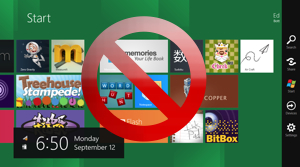Windows 8 dilemma: Consumers don't buy a tablet for the OS


A new study by Forrester breaks it down with crystal clarity. In just six months, the respondents willing to buy a tablet with Windows 8 inside dropped significantly. Where 46 percent were looking to Redmond for a tablet in the first quarter of this year, only 25 percent were doing so in the third quarter.
I have seen this same response in those primarily looking at Android-based tablets. Outside of the techie world, consumers don't care about the platform. They find something compelling about a particular tablet, whether it be form, price, or something else, and that drives them to open the pocket to make a purchase. One month the latest tablet from Samsung may be the favorite, only to see the new ASUS steal the thunder when announced a month later. Sure they may both run Android, but that is not a factor in the purchase decision for most folks.
This will continue to be a problem for Microsoft with Windows 8 when it is finally released in the future. It doesn't make hardware, and will be totally dependent on the tablet makers to capture the attention of prospective buyers. That hasn't worked too well with Windows Phone, and won't for the tablet space with Windows 8, either. The longer it takes to hit the market, the less relevant Windows 8 will be. The enterprise may be willing to pick up some tablets running Windows 8, but even that is not a given.
See also:
- Why I bought an iPad 2
- HP TouchPad: Everything you want to know
- Review: Motorola XOOM, brimming with unrealized potential
- Hands-on review: Samsung Galaxy Tab 10.1
- Hands on with first 7-inch Honeycomb tablet: Acer A100
- Lenovo IdeaPad K1 tablet: First impressions
- ThinkPad Tablet: Ready for the boardroom
- ThinkPad Tablet vs. Samsung Galaxy Tab 10.1 as laptop replacement